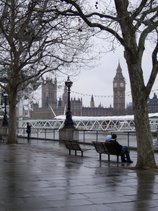The key points of the plan are:
- Strengthening leadership and governance in mosques.
- A framework of new standards for imams engaged by the state who will go into areas where individuals are susceptible to extremism such as prisons and universities.
- Helping communities build stronger civic and religious leadership.
- Rolling out good practice guidance nationally to encourage the teaching of citizenship in madrassahs and supplementary schools.
- £6 million of new allocations to around 70 local communities.
Obviously the Government is faced with a challenge of countering the radicalisation of young Muslims. But should this be done by the Government getting involved in social engineering? Is the involvement of the Government with an imam likely to increase or diminish his influence? The largest body the Muslim Council of Britain, has fallen out of favour, leading to claims that ministers are talking only to those prepared to agree with government.
Why are young Muslims susceptible to radical influence? Two factors:
- A sense of alienation with British society.
- British foreign policy, in the Middle East and Afghanistan.
These factors are equally likely to be felt by all sectors of society, but they aren’t likely to become suicide bombers. Actually there are other groups in British society which have caused more deaths than Islamic extremists.
Gun carrying Afro-Caribbean gangs
Drunk-drivers.
Why isn’t the Government paying equal attention to the Afro-Caribbean community? Is it because the deaths are mainly restricted to within the community? As for drunk-drivers, how many millions of pounds worth of “don’t drink and drive” campaigns have failed to prevent the slaughter on the roads?
The above argument is deliberately disjointed and lacking supporting evidence - just like the Governments latest plan.
















No comments:
Post a Comment